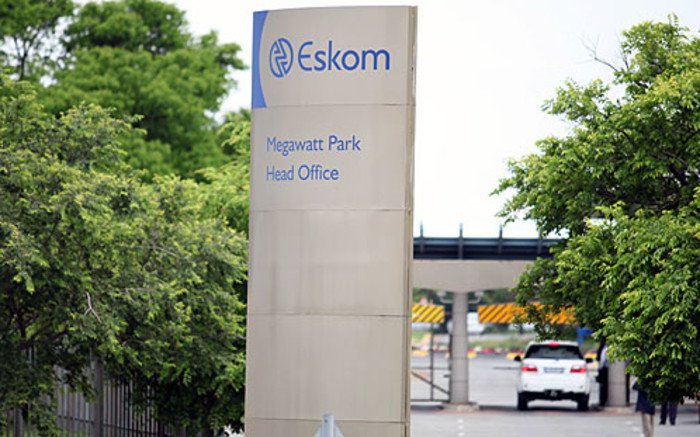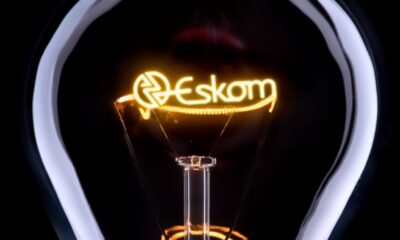Business
Inside Eskom’s Ghost Vending Scandal: How Insiders Fuel Billions in Electricity Theft

South Africans already battling loadshedding and sky-high tariffs now face another bitter truth: billions are being siphoned from Eskom through “ghost vending”, a sophisticated electricity theft scheme that insiders say has been running for years.
At the heart of the scandal lies Eskom’s Online Vending System (OVS), meant to be the safe, modern replacement for the old CDU vending machines. Instead, corrupt insiders and syndicates have found ways to manipulate itpumping out fake prepaid tokens that keep the lights on for households but generate no revenue for Eskom.
The kicker? Municipalities end up footing the bill, even though the electricity was never paid for.
A Crime with Deep Roots
This isn’t a new story. As far back as the mid-2000s, law enforcement flagged ghost vending syndicates operating with insider help. Hawks investigations in 2015 and 2021 led to arrests, but the system never truly collapsed. Syndicates were raking in R150,000 to R250,000 per day from illicit tokens, adding up to nearly R90 million annually.
In 2023, the National Prosecuting Authority confirmed just how deep the rot went: a former Eskom employee allegedly stole a Master Vending Unit and built a ghost vending empire worth R36 million.
Forensic investigator Calvin Rafadi calls it “a parallel Eskom,” run by insiders who understand the system’s weak points. “We need to deal with the root causethe managers inside Eskom who are involved,” he said.
The Municipal Fallout
Municipalities already groaning under record-breaking debt are now discovering they might be paying for stolen power. Eskom’s own reports show R23 billion lost to theft in a single financial year. Yet metros like Tshwane and Johannesburg, with Eskom debts of R6.7 billion and R3.2 billion respectivelyare expected to pay up.
Tshwane insists its “real-time vending platform” shields it from ghost vending, while Joburg’s City Power has been mum on the issue. But insiders suggest fraudulent Eskom tokens can still be used on STS-compliant municipal meters, meaning local governments are indirectly footing the bill.
As one frustrated Joburg resident quipped on X (formerly Twitter):
“So basically we’re paying Eskom for power stolen by Eskom’s own staff. You couldn’t make this up.”
SANEDI Blows the Whistle on Billing Chaos
Adding to the mess, a recent SANEDI report found Eskom’s billing and City Power’s systems riddled with errors. Eskom ignored loadshedding impacts in its estimates, while City Power misconfigured meters and used faulty mock billing.
The result? 142 million kWh of electricity unaccounted for, enough to power a small city.
This fog of underbilling, overbilling, and mismanagement creates the perfect cover for ghost vending syndicates. Some Joburg residents who were migrated from postpaid to prepaid meters have even stopped buying power altogetherpossibly using illegal tokens instead.
Eskom’s Public Face vs. the Reality
Eskom CEO Dan Marokane insists progress is being made. He says the utility is tracing token generation patterns across vending, billing, and finance systems. “We are comfortable that we have made significant progress,” he told reporters, though he admitted, “We are not where we want to be.”
Critics, however, remain skeptical. Social media users question why Eskom isn’t more transparent, while community leaders ask why municipalities should shoulder Eskom’s losses from insider corruption.
For many South Africans, it feels like déjà vu: another chapter in Eskom’s long history of mismanagement, where ordinary citizens end up paying the price.
Ghost vending is more than a technical scam, it’s a reflection of South Africa’s energy crisis at its most human level. On one side, communities are pushed into debt to keep the lights on. On the other, insiders enrich themselves through fraud, deepening Eskom’s financial woes and fueling mistrust.
The question now isn’t just whether Eskom can fix its vending systems. It’s whether it has the political will to root out insiders and rebuild public confidence.
Until then, ghost vending remains a painful symbol of how corruption in the shadows can leave an entire country in the dark.
{Source: My Broad Band}
Follow Joburg ETC on Facebook, Twitter , TikTok and Instagram
For more News in Johannesburg, visit joburgetc.com



























